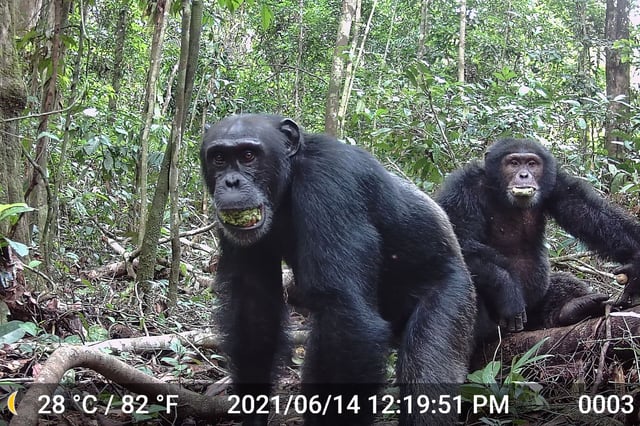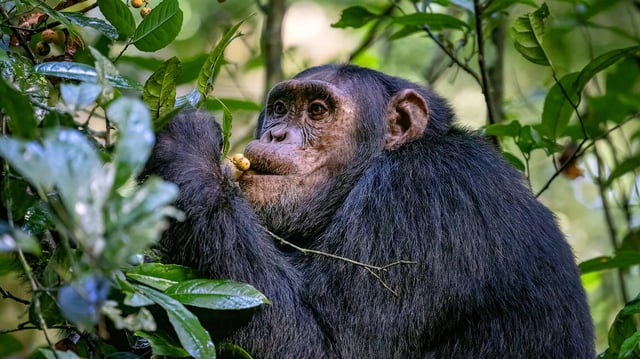Overview
- The peer‑reviewed study, published Sept. 17–18 in Science Advances by a UC Berkeley–led team, directly quantified dietary ethanol in wild chimpanzees for the first time.
- Researchers sampled 21 fruit species at Ngogo in Uganda and Taï in Côte d’Ivoire, measuring average ethanol levels of roughly 0.26% to 0.32% by weight.
- Combining those concentrations with typical intake of about 4.5 kilograms of fruit per day yielded an estimated 14 grams of ethanol daily, equal to one U.S. standard drink and about two when adjusted for chimp body mass.
- Chimpanzees exhibited no obvious intoxication, with exposure occurring at low concentrations dispersed across many hours of fruit feeding.
- Key uncertainties remain over active selection of higher‑ethanol fruits and physiological effects, and researchers are collecting urine to test alcohol metabolites and planning broader fermentation measurements.



